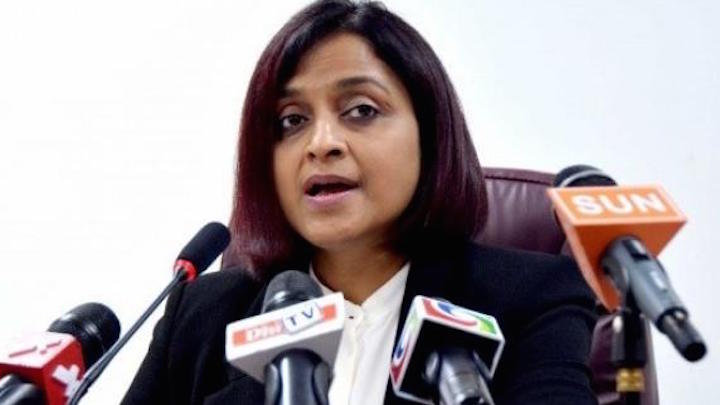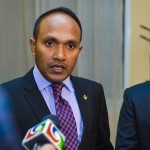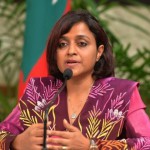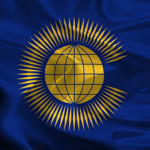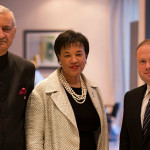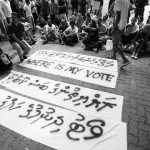The Maldives “will seriously consider its membership at the Commonwealth” if it is placed on the agenda of the Commonwealth Ministerial Action Group (CMAG) for a second time in four years, foreign minister Dunya Maumoon has said.
Some Commonwealth members are pushing for the CMAG to assess alleged violations of the Commonwealth’s principles by the Maldives.
Diplomatic pressure has been mounting on the Maldives over the imprisonment of opposition politicians, including ex president Mohamed Nasheed.
In a conversation on Wednesday with Kamalesh Sharma, the Secretary General of the Commonwealth, Dunya said there are no serious violations in the Maldives and criticized Sharma’s alleged failure to follow due process before considering action.
“I said that the trust that had begun to build between the Maldives and the Commonwealth will be seriously undermined if the Maldives is placed on the CMAG agenda,” Dunya told the press today.
The CMAG can recommend measures for collective action to restore democracy and constitutional rule.
The main opposition Maldivian Democratic Party (MDP) called on the Maldivian government to “stop being so arrogant.”
“Having to leave the Commonwealth for not abiding by its principles will only isolate the Maldives from the rest of the world. And it will not be very healthy for the Maldives, but detrimental,” MP Imthiyaz Fahmy said.
CMAG agenda
The Maldives was placed on the CMAG agenda from March 2012 – March 2013 after President Nasheed resigned amidst a police and military mutiny. He later alleged he had been ousted in a coup d’état.
A Commonwealth backed inquiry found the transfer of power to be constitutional.
The Maldives was previously placed on the CMAG’s agenda “on an unfair basis, based on false allegations, and the country’s economy and democratic governance suffered significantly as a result,” Dunya said.
Placing the Maldives on the CMAG’s agenda for a second time amounts to selective and unfair treatment and violates the Commonwealth’s own rules, she contended today.
She also said Sharma had not raised questions over violations in the Maldives, or extended assistance for redress as required by the Commonwealth’s rules.
Nasheed was arrested in February and sentenced to 13 years in jail on terrorism charges in March over the arrest of a judge during his tenure. His imprisonment triggered a political crisis with daily protests and hundreds of arrests.
The opposition leader’s imprisonment coincided with the imprisonment of ex-defence minister Mohamed Nazim on weapons smuggling charges. Three more key opposition leaders have since been charged with terrorism over a historic anti-government protest on May 1.
The Maldives Supreme Court meanwhile ruled a report submitted to the UN by the state human rights watchdog unlawful, and has barred it from communicating independently with foreign organizations.
Signs of a thaw are emerging between the government and the opposition. Nasheed was transferred to house arrest in late June after the opposition backed a constitution amendment to allow President Abdulla Yameen to replace his deputy.
Representatives of the government and the opposition sat for a preliminary meeting to prepare for talks last night.
In mid-June Canada called on CMAG to “urgently put the deteriorating situation in the Maldives on its formal agenda.”
Dunya urged Sharma to take note of the positive changes in the Maldives in the last few weeks. She also accused Canada of undue influence in the Commonwealth as a donor country.
On February 24, in response to statements expressing concern over Nasheed’s trial, Dunya said:
“We don’t get much aid or development from being a Commonwealth country. In 2012, Maldivians questioned the importance of us remaining in the Commonwealth. I am sure the question will arise again.”

